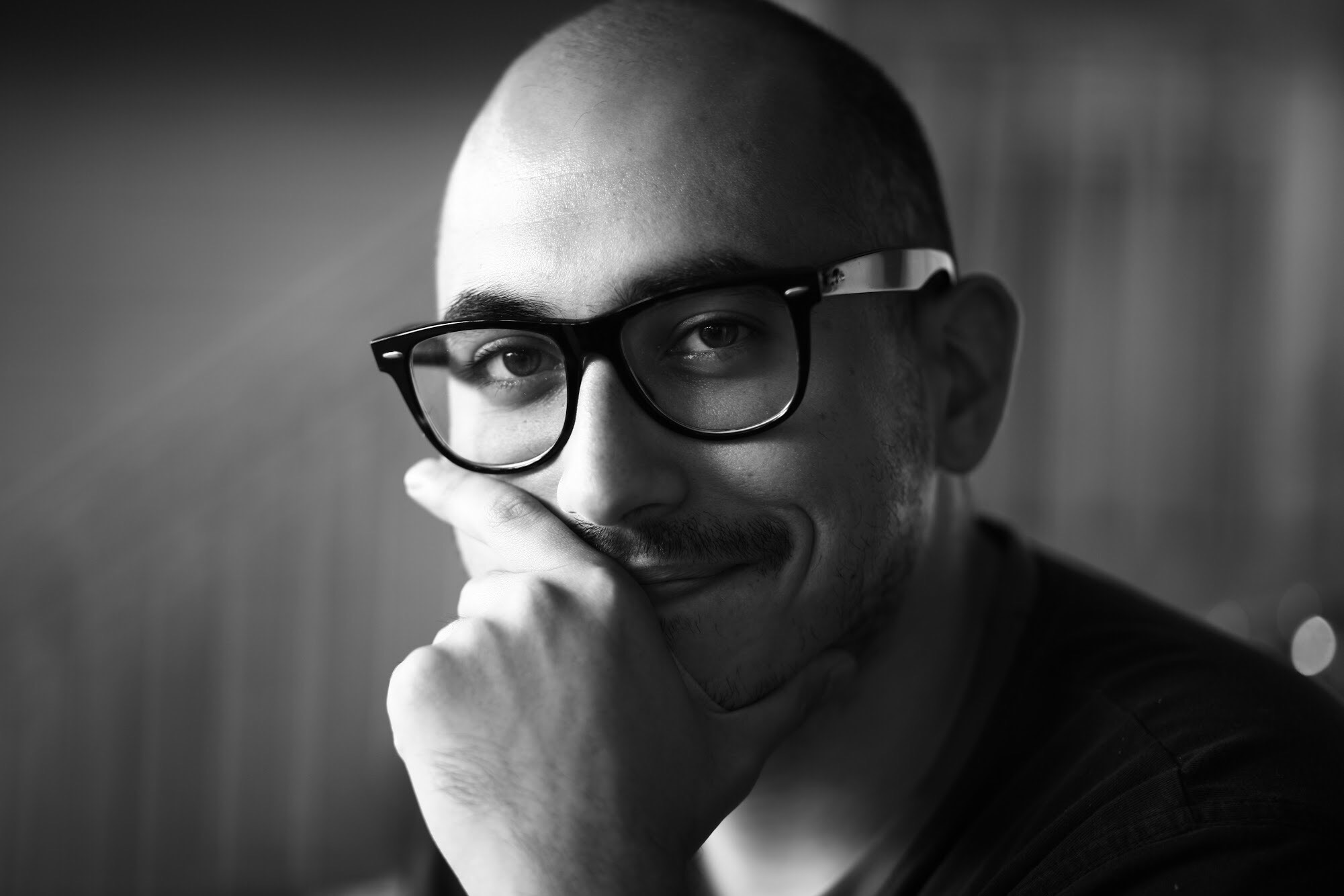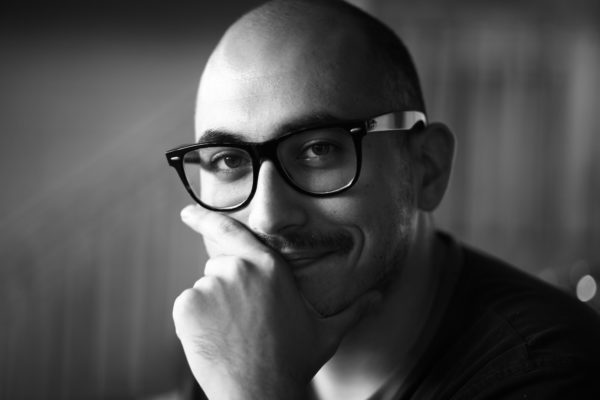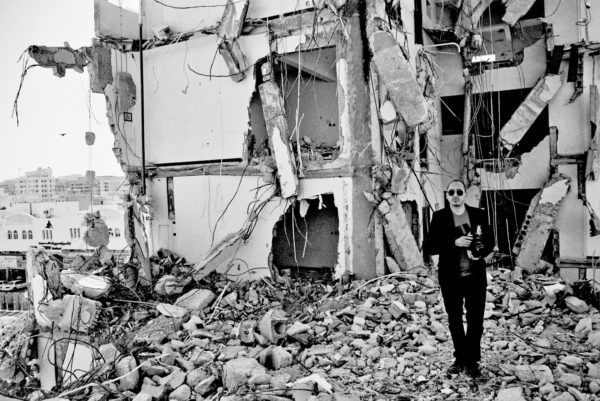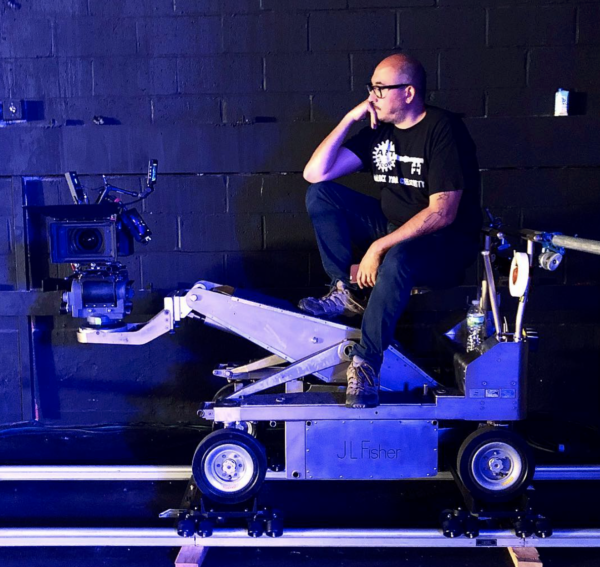We sat down with Timur Civan, Sigma Corporation of America’s first Cine Pro, to learn more about his career, what inspires him and what things he’s looking forward to working with Sigma.
Born and raised in New York City, Timur Civan has always seen the world through the eyes of an artist. He began pursuing his creative passion as a contemporary sculptor, incorporating video images into some of his works and exploring a variety of innovative art forms, including photography. Becoming a Director of Photography was therefore a natural progression.
After much experimentation with moving images during his brief professional art career, Civan came to the realization that painting an image with light to tell a story was the medium that best expressed his artistic vision. His techniques in cinematography are at the cutting edge of creative imaging, bolstered by his explorations with new and classic lenses, innovative lighting styles, and a deep dive into the latest technologies. Given his naturally inquisitive nature, fascination with science, and acute artistic sensibilities, he is drawn to technically complex commercial and experimental shooting assignments and is highly adept at in-camera special effects, high speed, tabletop, motion control, and macro work.
Sigma: How long have you been working as a cinematographer?
Timur: 12 amazing years.
What inspired you to pursue a career in cinematography?
I was initially a working sculptor. Through some very fortunate and somewhat unusual circumstances, I wound up somehow the “DP” of a commercial project I had no business shooting. I had never been on a professional set before, and I got through the day because of the kindness of the gaffer and director, who thought it better, to just help the severely green kid get through the day, than to try to find a replacement. By the end of the day, I was asked back the next week for a different project. As I learned and trained under other DP’s, along the way, I developed an affinity for the challenging balance of creativity, practicality, problem solving and leadership. After a year or two, I stopped making art, and pursued cinematography full time.
What keeps you motivated between projects?
The sculptor in me always comes up with new experiments to try. The minute I get some down time, my minds starts with the phrase “What happens if…. “. I experiment a lot, I try new optics, build my own lenses, build new lighting instruments etc. I’m always looking for a new way to flavor an image.
What’s the biggest piece of advice you would give to someone looking to begin a career as a cinematographer?
Trust yourself. The only way to be the best DP you can possibly be, is to trust yourself, your taste, and your choices. You are on set because someone believes in you, trusts you, and wants your aesthetic to help them make something beautiful. No one ever made anything new, or interesting by emulating someone else. Believe that your experiences, influences, references and taste will be distilled into something unique and new. It takes a lot of work to build up enough self-confidence while remaining open and vulnerable to potential criticism. But that’s the price you pay to be an artist. The benefits far outweigh the risks.
What is the best thing about your job?
Each and every day, the crew is presented with a new, never before seen puzzle that’s ours to solve, while simultaneously, taking beautiful pictures.
What is the most challenging thing about your job?
Many years ago, I would have said the most difficult part was finding work, or the challenges of managing a department. But I find right now, the biggest challenge is to prevent the job from taking over every aspect of my life. When you are young, single, with little responsibility, it’s easy to get lost in work, as you basically are getting paid to do what you love, with your friends, and play with expensive toys. But now I think, the biggest challenge is being able to maintain the healthy balance between my professional life, and personal. It takes a lot of focus to keep the quality of your work high and ever growing, while being able to turn it off when you go home. Living is equally important to working.
How is the industry different today than 30, or even 10, years ago?
The year that I started in this business, 2005, 24P while not brand new for top level productions, was brand spanking new to the masses. Most medium to high end projects were still shot on film, and hardly anyone owned any significant amount of gear other than rental houses or a handful of producers or DP’s. The very first job I ever had in the industry, i was a loader on an ultra-low budget 35mm feature. I learned to check out an ARRI BL4, load mags, shoot charts for the lab to properly process the stocks, and prepare lab reports. My 2nd Job I was as a 2nd AC on a Varicam shoot, and after that, I never saw film again. The transition happened before my eyes. I didn’t even realize it was happening or that it was even that significant. It just was. Looking back, it’s almost laughable how archaic and rudimentary the technology was just 10 years ago.
How important is the gear you chose to work with?
Choosing the appropriate gear is paramount. There is no “best” anything. Every single job needs special tools that accomplish what you need done. Budget, crew size and shooting conditions determine what you use. These days every camera is excellent with each having a particular strength. The job you are shooting, will determine which strength you need. That said, I can honestly say the Sigma Cine line is so flexible and performs so well in so many aspects that they have been with me on nearly every job for the past 12 months. They do their job, and don’t really say “no” to you when you need something special, whether its optical speed, weather sealing, sharpness, or small size and light weight. One of the few pieces of gear that I can say I use every time. The Sigma’s and my O’Connor Tripod. Those are my two must haves on every job.
Since we are dreaming…. I would want to shoot Alejandro Jodorowsky’s: Dune, as he intended.
Who would you most want to work with (director/actor/etc)?
Directors: Paul Thomas Anderson, Alejandro Jodorowsky Or Jonathan Glazer.
Actors: Ben Mendelsohn or Tilda Swinton.
Anything exciting you are developing that you can talk about?
I’m in talks to shoot a dark romantic Comedy series. But that’s about all I can say.




